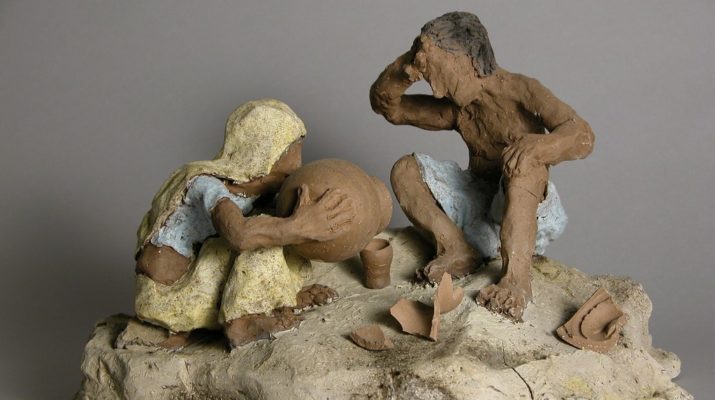John 4:24-26
Narrative Lectionary
24 GodA is spirit,B and those who worshipC him mustD worship in spirit and truth.”E
A “God” = Theos. From Proto-Indo-European origins, meaning do, put, place. This is God or a god in general.
B “spirit” = pneuma. From pneo (to blow, breath, breathe hard). This is wind, breath, or ghost. A breeze or a blast or air, a breath. Figuratively used for a spirit, the human soul or part of us that is rational. It is also used supernaturally for angels, demons, God, and the Holy Spirit. This is where pneumonia comes from.
C “worship” = proskuneo. From pros (advantageous for, at, to, toward, with) + kuneo (to kiss); {may be related to kuno (dog)}. This is to do reverence, kneel, to prostrate oneself in homage, to worship.
D “must” = dei. From deo (to tie, bind, compel; declare unlawful). This is what is necessary or proper. It is what is needed or what one should do – a duty or something inevitable. This refers to something absolutely necessary.
E “truth” = aletheia. From alethes (true, unconcealed; true because it is in concert with fact and reality – attested; literally, what cannot be hidden; truth stands up to test and scrutiny and is undeniable, authentic). {from a (not, without) + lanthano (unnoticed, concealed)}. Truth is literally that which is not or cannot be concealed. This word covers more than the sense of true versus false. It spoke of truth as that which corresponds to reality – reality as opposed to illusion. Thus, it includes, sincerity, straightforwardness, and reality itself.
25 The womanF said to him, “I knowG that MessiahH is coming” (who is called Christ).I
F “woman” = gune. Perhaps from ginomai (to come into being, to happen, become, be born; to emerge from one state or condition to another; this is coming into being with the sense of movement or growth). This is woman, wife, or bride. This is where the word “gynecologist” comes from.
G “know” = eido. This is to know, consider perceive, appreciate, behold, or remember. It means seeing with one’s eyes, but also figuratively, it means perceiving – seeing that becomes understanding. So, by implication, this means knowing or being aware.
H “Messiah” = Messias. 2x in NT. From Hebrew mashiach (anointed, anointed one, messiah; someone consecrated such as a king, priest, or saint); from mashach (to smear, anoint, paint, spread; implies an act of consecration). This is Messiah or Anointed One.
I “Christ” = Christos. From chrio (consecrate by anointing with oil; often done for prophets, priests, or kings). Literally, the anointed one, Christ. The Greek word for Messiah.
“When he comes, he will proclaimJ all thingsK to us.”
26 JesusL said to her, “I am he, the one who is speaking to you.”
J “proclaim” = anaggello. 14x in NT. From ana (up, again, back, among, by, anew) + aggello (to announce, report) {from aggelos (angel, messenger – supernatural or human envoy of God); probably from ago (lead, bring, drive, carry, guide, go)}. This is returning with word, reporting, declaring, announcing. It is to tell something all the way, which is to say to tell it clearly.
K “all things” = hapas. From hama (at once, together with) +pas (all, every, every kind of) OR from a (with) + pas (see above). This is all; every part working together as a unit.
L “Jesus” = Iesous. From Hebrew Yehoshua (Joshua, the Lord is salvation); {from YHVH (proper name of the God of Israel; the self-existent and eternal one); {from havah (to become) or from hayah (to come to pass, become, be)} + yasha (to deliver, defend, help, preserve, rescue; properly, to be open, wide or free, which implies being safe. So, in a causative sense, this is to free someone)}. This is Jesus or Joshua in Greek – the Lord saves or the Lord is salvation.
Image credit: “Christ and the Samaritan Woman” by Austin D. Miller, c. 2006.




